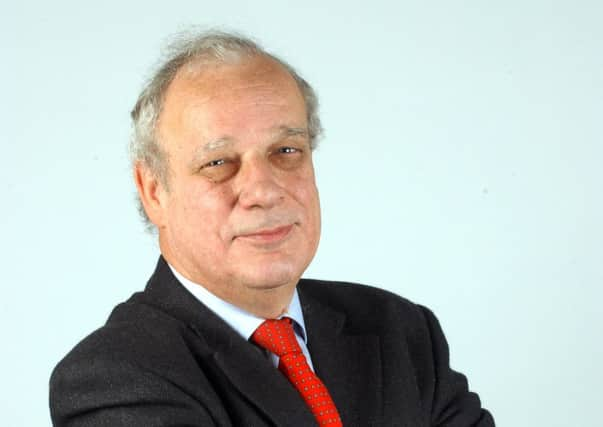Comment: Share ownership levels see a resurrection


Five years ago, as the global financial crisis struck home and markets worldwide were plunging, it seemed trust in share ownership was bust forever. Three searing collapses in ten years had surely killed trust.
But how quickly moods change. Last year open-ended funds – unit trusts in the main – experienced investor inflows of £20.4 billion, with equity funds taking the bulk of cash.
Advertisement
Hide AdAdvertisement
Hide AdThe figure was up from £14.3bn the previous year as – once again – rising stockmarkets worldwide boosted investor confidence. Last week the Investment Management Association reported funds under management in open-end funds hit a record £770bn.
Equity funds saw inflows of £11.4bn – the highest level since the height of the dotcom bubble in 2000. Fixed income funds saw an exodus of funds for the first time since 1992, while equity funds were the most popular asset class every calendar month since September 2012, barring March 2013.
Global equity funds were the best-sellers, taking £4bn last year. And UK equity funds were the second most popular, with net retail sales of £2.9bn. An improving economic performance is often cited as the reason. But Europe has had the most pallid recovery – yet European equity funds took in £2bn in sales, the highest level since 2000.
All this might suggest that aggressive unit trust advertising and honey-tongued fund managers were responsible. Well, not quite. Passively managed tracker funds took in £3.2bn last year – the largest share of the market since the IMA began collating data
Small change for trust
Tracker funds may be gaining in popularity, but the charisma of star managers never ceases to surprise. When the highly successful Neil Woodford announced he was leaving Invesco Perpetual, the group that manages Edinburgh Investment Trust and its two open-ended funds, investors took to the hills, withdrawing £2bn from his equity income funds.
So it was reassuring to hear that Mark Barnett, his long-time deputy at Invesco, will be taking over and broad continuity looks to have been secured – and the Edinburgh Trust has not suffered any loss in performance since the announcement.
During Woodford’s five-year tenure, Edinburgh Investment Trust grew by 60 per cent – another blow to those who dismissed investment trusts as “fuddy duddy”.
Since it was established in 1889 with an initial capital of £1 million, the fund now stands at £1.4bn. It remains cautiously managed, predominantly focused on the UK. For the defensive minded, with an eye to income, I see no reason to sell.
A dividend to savour?
Advertisement
Hide AdAdvertisement
Hide AdThese are testing times for investors in Vodafone. They have, as FE TrustNet put it last week, “a serious but pleasant decision to make” – what to with an imminent bumper pay-out. The sale of its stake in Verizon Wireless should net shareholders 112p a share in a mixture of cash and Verizon shares.
It has been common in the past for investors to reinvest dividends in the company – even one-off bumper payments like this. But this may present an opportunity to reinvest the dividend elsewhere. A 20 per cent rise in Vodafone shares since the deal was announced last September has already prompted many to take profits.
Vodafone is left with a European focus. Results have not been good in recent years, with Spain and Italy both disappointing. As Fidelity fund manager Michael Clark points out, this is a tough environment. He said: “Nearly every telecom company in Europe has had to cut its dividend and my concern with Vodafone is that it has thin dividend cover from free cashflow … so I don’t recommend it as an income stock.”
Others worry that, without the Verizon dividend it received, Vodafone’s own dividend cover won’t be as strong. Alternatives to consider are BT and Shell, though the former is yielding less than the telecoms sector average and the oil giant has recently fallen back on a profits warning. Elsewhere there is GlaxoSmithKline, National Grid and United Utilities.
Hooray for Harry
Harry Nimmo, global asset manager at Standard Life Investments, was named Fund Manager of the Decade at the Quoted Company 10th anniversary awards in London last week.
The £255m Standard Life Investments UK Smaller Companies Trust he manages has been an outstanding success, rising more than 320 per cent over five years.